SUMMARY
This is AI generated summarization, which may have errors. For context, always refer to the full article.
- S.Korea lady president: almost like dad
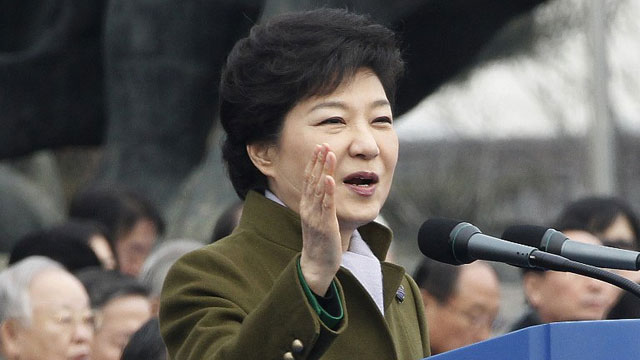 Despite her father having been the very architect of the Korean-model development state, Park Geun-hye has managed to move with the times. She now leads an economically successful country considered stricken with inequality, excessive power in the hands of the chaebol conglomerates, and a lack of decent jobs for young graduates. She promised to relieve these ills and spoke of “a new era of happiness” for Koreans. In her first speech since taking office, President Park, 61, mentioned the economic “miracle” several times, and referred explicitly to the “can-do” spirit of the first Park era. Park Chung-hee was one of the founders of modern Korea who took power after a coup d’etat and ruled heavy-handedly for 18 years. Some regard him as the cornerstone of South Korea’s present prosperity, others see him as a dictator who ignored human rights and crushed dissent. Despite the family’s past, 52% of voters elevated another Park to power.
Despite her father having been the very architect of the Korean-model development state, Park Geun-hye has managed to move with the times. She now leads an economically successful country considered stricken with inequality, excessive power in the hands of the chaebol conglomerates, and a lack of decent jobs for young graduates. She promised to relieve these ills and spoke of “a new era of happiness” for Koreans. In her first speech since taking office, President Park, 61, mentioned the economic “miracle” several times, and referred explicitly to the “can-do” spirit of the first Park era. Park Chung-hee was one of the founders of modern Korea who took power after a coup d’etat and ruled heavy-handedly for 18 years. Some regard him as the cornerstone of South Korea’s present prosperity, others see him as a dictator who ignored human rights and crushed dissent. Despite the family’s past, 52% of voters elevated another Park to power.
Read more on The Economist and CNN. - Italy votes: Assault on status quo
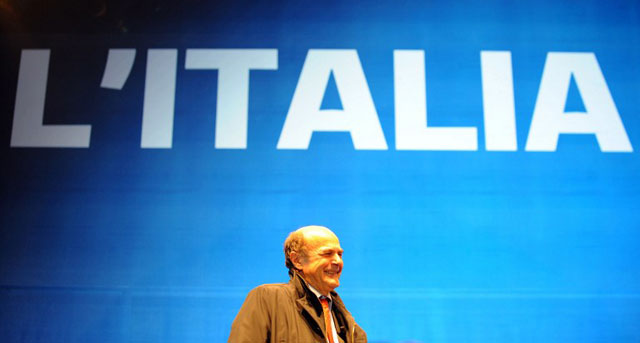 Italy’s centre-left coalition led by Pier Luigi Bersani has scraped a narrow victory in elections to the lower house of parliament against Silvio Berlusconi, the interior ministry reported on February 26 with almost all the ballots counted. Bersani’s grouping led with 29.55% to the Berlusconi bloc’s 29.18%, which with the winner’s premium will hand it a majority in the lower house, although the vote in the upper house remains inconclusive. Berlusconi was a 3-time prime minister.
Italy’s centre-left coalition led by Pier Luigi Bersani has scraped a narrow victory in elections to the lower house of parliament against Silvio Berlusconi, the interior ministry reported on February 26 with almost all the ballots counted. Bersani’s grouping led with 29.55% to the Berlusconi bloc’s 29.18%, which with the winner’s premium will hand it a majority in the lower house, although the vote in the upper house remains inconclusive. Berlusconi was a 3-time prime minister.
Read more on Rappler. - More Team PNoy in ‘Magic 12’ – survey
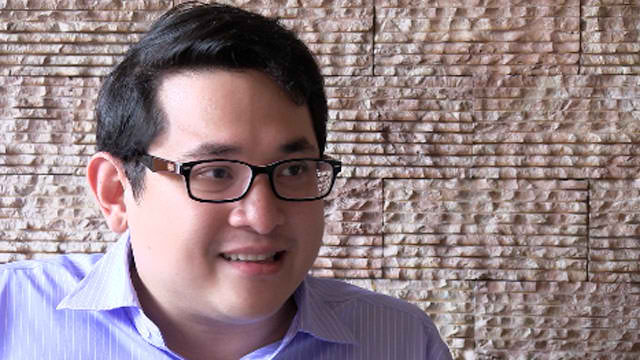 There are now 4 Team PNoy candidates, one United Nationalist Alliance (UNA) and 3 independent candidates likely taking the top 8 senatorial seats, the February 15-17 nationwide poll of Social Weather Stations-BusinessWorld showed. Four UNA and 3 Team PNoy bets are statistically in the running for the last 4 seats. Presidential cousin, Paolo Benigno “Bam” Aquino IV, made it to the Magic 12 for the first time, while Cagayan Rep Jack Enrile, son of Senate President Juan Ponce Enrile, and re-electionist Senator Gringo Honasan fell out. Re-electionist senators Loren Legarda, Francis Escudero, and Alan Peter Cayetano remain the survey leaders.
There are now 4 Team PNoy candidates, one United Nationalist Alliance (UNA) and 3 independent candidates likely taking the top 8 senatorial seats, the February 15-17 nationwide poll of Social Weather Stations-BusinessWorld showed. Four UNA and 3 Team PNoy bets are statistically in the running for the last 4 seats. Presidential cousin, Paolo Benigno “Bam” Aquino IV, made it to the Magic 12 for the first time, while Cagayan Rep Jack Enrile, son of Senate President Juan Ponce Enrile, and re-electionist Senator Gringo Honasan fell out. Re-electionist senators Loren Legarda, Francis Escudero, and Alan Peter Cayetano remain the survey leaders.
Read more on Rappler. - OceanaGold’s PH mine a test on revenue sharing woes
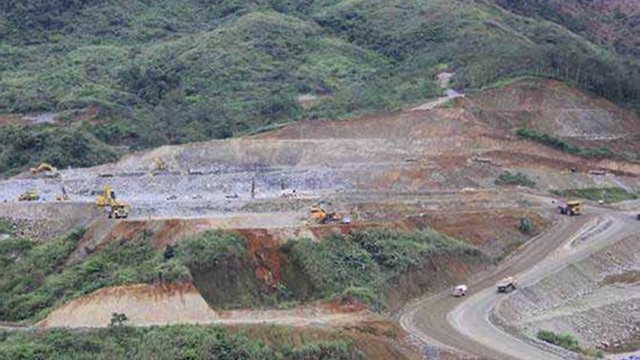 The timing of tax payments was at the core of why the first shipment of copper-gold concentrates from the Philippines’ first fully foreign-owned large scale mine did nor proceed as planned on Monday, February 25. Australian miner OceanaGold said its Didipio mine in Nueva Vizcaya province is covered by a 5-year tax exemption period under its Financial and Technical Assistance Agreement (FTAA) permit. The tax bureau chief insisted, however, that a 2% excise tax was triggered when the mine started processing ores in December 2012. The Didipio mine is the first mining tenement in the Philippines to operate under the FTAA regime.
The timing of tax payments was at the core of why the first shipment of copper-gold concentrates from the Philippines’ first fully foreign-owned large scale mine did nor proceed as planned on Monday, February 25. Australian miner OceanaGold said its Didipio mine in Nueva Vizcaya province is covered by a 5-year tax exemption period under its Financial and Technical Assistance Agreement (FTAA) permit. The tax bureau chief insisted, however, that a 2% excise tax was triggered when the mine started processing ores in December 2012. The Didipio mine is the first mining tenement in the Philippines to operate under the FTAA regime.
Read more on Rappler. - PH straddles peace process, Sabah standoff
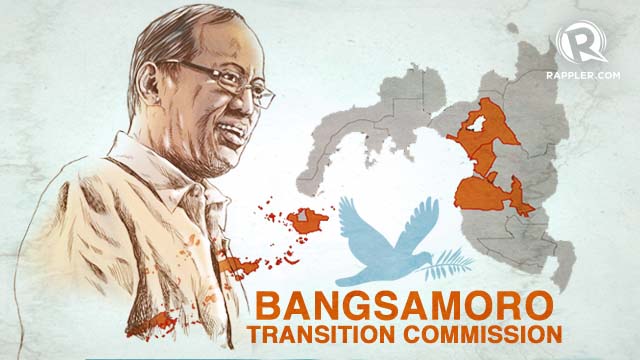 Two February 25 moves by the Philippine government involved Malaysia: the peace talks with the Moro Islamic Liberation Front (MILF) resumed in Kuala Lumpur and the chartered boat sent to fetch followers of the Sultan of Sulu holed up in Sabah island state. The sultanate reportedly felt left out in the Framework Agreement between the Philippine government and the MILF, resulting in their renewed claim of and standoff in Sabah. It’s a concern that comes amid the start of the 36th round of peace talks between the government and another Muslim group. On Monday, President Benigno Aquino III also named the members of the Transition Commission that will draft the basic law that would pave the way for the Bangsamoro political identity.
Two February 25 moves by the Philippine government involved Malaysia: the peace talks with the Moro Islamic Liberation Front (MILF) resumed in Kuala Lumpur and the chartered boat sent to fetch followers of the Sultan of Sulu holed up in Sabah island state. The sultanate reportedly felt left out in the Framework Agreement between the Philippine government and the MILF, resulting in their renewed claim of and standoff in Sabah. It’s a concern that comes amid the start of the 36th round of peace talks between the government and another Muslim group. On Monday, President Benigno Aquino III also named the members of the Transition Commission that will draft the basic law that would pave the way for the Bangsamoro political identity.
Read more on Rappler. - NPC, Liberal Party ‘vital partners’
In Philippine politics, math comes handy. This makes the National Nationalist People’s Coalition (NPC) a vital partner to the administration-led Liberal Party (LP). In a #TalkThursday interview, Markina Rep. and LP spokesman Miro Quimbo debunked reports of cracks between the two. He acknowledged that the Aquino administration would not have carried out controversial measures in Congress — the impeachment against Chief Justice Corona and former Ombudsman Merceditas Gutierrez, sin tax and reproductive health laws — without LP’s “partnership” with the second biggest party in Congress. He noted there are issues when candidates of the two parties vie for the same post in local races, but stressed that NPC’s “commitment to the president and to the coalition is not only for this elections but in fact up until the end of the term of the president.”
View the interview on Rappler. - Goodbye, Herald Tribune; Hello, Int’l NYT
 For a decade, the International Herald Tribune has been the “global edition” of the New York Times in all but name. Now the evolution is complete and IHT, the the Paris-based 125-year-old global newspaper, will be rebranded as the International New York Times. It will also change its masthead sometime this fall. The announcement is part of the parent firm’s larger plan to focus on its core brand and build its international presence, including online.
For a decade, the International Herald Tribune has been the “global edition” of the New York Times in all but name. Now the evolution is complete and IHT, the the Paris-based 125-year-old global newspaper, will be rebranded as the International New York Times. It will also change its masthead sometime this fall. The announcement is part of the parent firm’s larger plan to focus on its core brand and build its international presence, including online.
Read more on NYT and Rappler. - Foreign biz groups in PH give wishlist
 Amid the economy’s newfound rock star status, is the Philippines really on track? Foreign business groups, as well as policy makers, gather on Tuesday, February 26, shared their insights and reviewed how the country has progressed in terms of boosting investment, jobs and economic growth. In a recommendation paper called “Arangkada,” the Joint Chamber of Commerce assessed the performance of the industries and key economic drivers — agribusiness, infrastructure, manufacturing, mining and tourism — vis-a-vis their full potentials. The group has aimed for $75 billion in new foreign direct investments and 10 million new jobs this decade.
Amid the economy’s newfound rock star status, is the Philippines really on track? Foreign business groups, as well as policy makers, gather on Tuesday, February 26, shared their insights and reviewed how the country has progressed in terms of boosting investment, jobs and economic growth. In a recommendation paper called “Arangkada,” the Joint Chamber of Commerce assessed the performance of the industries and key economic drivers — agribusiness, infrastructure, manufacturing, mining and tourism — vis-a-vis their full potentials. The group has aimed for $75 billion in new foreign direct investments and 10 million new jobs this decade.
Follow Rappler’s live blog here. - Asians not saving enough for old age – study

Asians do not have enough savings to cover their day-to-day needs when they retire, a study by Hong Kong and Shanghai Banking Corp (HSBC) retail banking and wealth management group noted. Retirement savings of Asians can only support them for another 9 to 12 years, but wealth managers said Asians expect to live 15 to 21 years more after retirement. With longer life spans, financial planning is key so Asians can retire comfortably with around $40,000 per year. The most expensive country to retire in Asia and the Pacific region is Australia where retirees need around $60,471 per year. Those from Hong Kong will need $56,217, and from Singapore, $48,773.
Read more on Rappler.
Hongkong business district image via Shutterstock - New pope coming sooner than later?
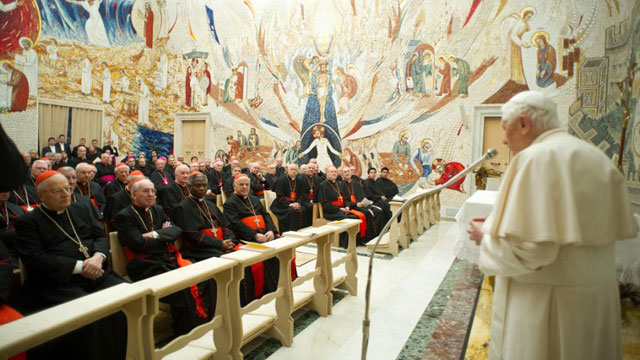
The papal elections may come earlier than expected after resigned Pope Benedict XVI signed a special decree allowing the voting process for his successor to begin less than the usual 15- to 20-day waiting time. Normally, this period is allotted for mourning as well as logistics issues involved in gathering the cardinals from around the world to participate in the process. Unlike the popes before him who were replaced after death, Benedict XVI cited ill health in deciding to step down on Thursday, February 28. One cardinal — Keith O’Brien, Britain’s most senior Roman Catholic cleric — will not be joining the voting ritual. He has just resigned due to “inappropriate behavior.”
Read more on Rappler.
Add a comment
How does this make you feel?
There are no comments yet. Add your comment to start the conversation.